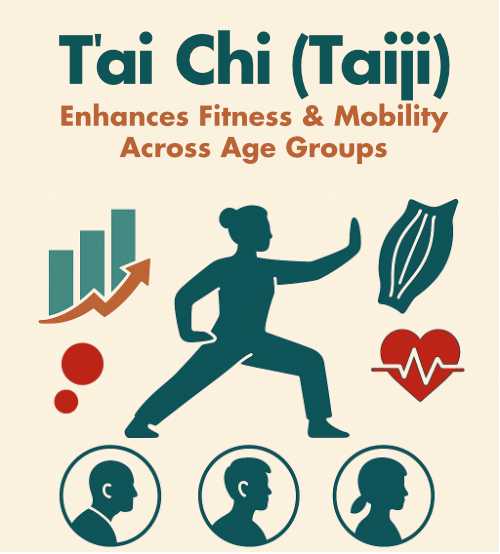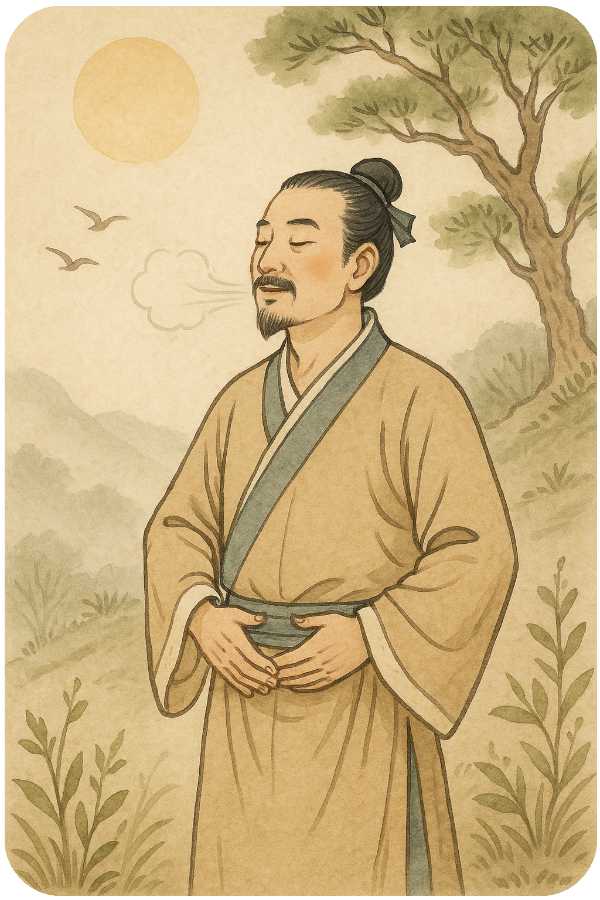Recent Scientific Research:
T'ai Chi is Stepping out of the Shadows
T'ai Chi is stepping out of the shadows of conventional workouts. Recent research highlights the effectiveness of T'ai Chi (Taijiquan) and other Traditional Chinese Exercises (TCEs) in improving fitness and mobility. These practices have been found to outperform common forms of physical activity such as walking and swimming, especially among older adults and individuals with chronic conditions.
 A report from Tom’s Guide, referencing insights from Harvard Medical School, emphasizes that T'ai Chi enhances coordination, flexibility, bone density, muscle tone, and sleep quality. It also supports mental clarity and emotional health, making it more comprehensive than many traditional fitness approaches.
A report from Tom’s Guide, referencing insights from Harvard Medical School, emphasizes that T'ai Chi enhances coordination, flexibility, bone density, muscle tone, and sleep quality. It also supports mental clarity and emotional health, making it more comprehensive than many traditional fitness approaches.
Backing this claim, a meta-analysis published in Medicine (Baltimore) evaluated 31 studies involving over 2,500 participants. The findings show that TCEs significantly improve balance and lower-limb strength. The optimal program included 40 to 60-minute sessions, three to four times a week, for a duration of 12 to 16 weeks.
Another study in Frontiers in Public Health confirmed benefits in postmenopausal women and individuals with chronic obstructive pulmonary disease (COPD). These benefits include better joint function, increased bone mineral density, improved insulin sensitivity, and lower systemic inflammation.
For younger populations, research published in Scientific Reports evaluated the effects of T'ai Chi on obese university students. Results indicated improvements in cardiovascular fitness, lean muscle mass, and reduced waist circumference.
Ancient Practices, Scientifically Validated
For centuries, T'ai Chi has been practiced as a method for cultivating health, balance, and energy, often described in terms of Qi flow, Yin-Yang balance, and the harmony of body and mind. Today, these traditional concepts align closely with modern understandings of neurophysiology, hormonal regulation, and musculoskeletal health.
Slow, mindful movements in T'ai Chi support joint stability, increase proprioception, and activate the parasympathetic nervous system. What traditional practitioners referred to as "Qi circulation" may now be understood as improvements in blood flow and nervous system function.
Scientific validation not only confirms T'ai Chi's physical benefits but also affirms its philosophical foundation. By integrating ancient wisdom with modern science, T'ai Chi offers a holistic and accessible pathway to lifelong wellness.






